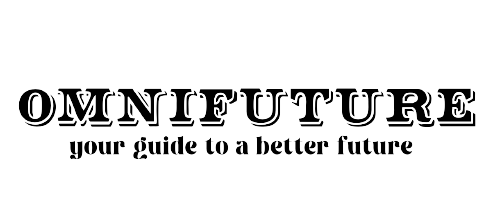False statements, misdirection, half-truths and outright lies: When promoted and repeated within the echo chambers of social media, they will form attitudes, affect coverage and erode democracy. Because the psychologist Daniel Kahneman has stated, you can also make individuals imagine in falsehood by means of repetition, “as a result of familiarity shouldn’t be simply distinguished from fact.”
Disinformation and misinformation have undermined belief in our electoral programs, in vaccines and within the horrific actuality of the Uvalde faculty capturing. They started to swirl within the rapid aftermath of the Jan. 6 assault on the USA Capitol. Intelligence officers warn that with the midterm elections approaching, there’ll probably be a tsunami of extremist disinformation.
To higher perceive the phenomenon, let’s first outline our phrases. Disinformation is fake speech designed to deceive you. Misinformation is speech that’s fallacious. Disinformation is intentional; misinformation is probably not.
Disinformation isn’t new — it’s been round so long as data. However, as we speak, disinformation appears to be in every single place. With the instantaneous and mass distribution of user-generated content material social media, there aren’t any gatekeepers and no limitations to entry. Anybody can create disinformation, share it, put it on the market. We’re all accomplices. We’re all victims.
The biggest funnel of disinformation is home — sure, extremists and nationalist teams, but in addition your Uncle Harry. Particularly your Uncle Harry. Disinformation thrives in instances of uncertainty and divisiveness. However disinformation doesn’t create divisions — it widens them.
Russia’s position in sowing disinformation round their annexation of Crimea in 2014 grew to become a template for his or her interference within the American elections of 2016 and 2020. However Russia is on no account the one dangerous actor — the Chinese language and the Iranians are additionally within the recreation.
Right here is a great starter set of books on disinformation that assist clarify its historical past, its methods, its results and how you can fight it.
The English phrase disinformation comes from the Russian dezinformatsiya, a Soviet-era coinage describing one of many ways of knowledge warfare. Rid’s “Lively Measures” is a colourful historical past of contemporary Russian disinformation. From the start, he writes, the Russians noticed disinformation as an assault towards open societies, “towards a liberal epistemic order.” It was meant to erode the foundations of democracy by undermining belief and calling into query what was a reality and what was not.
The good perception of Russian disinformation is that it needn’t be false — the best disinformation often accommodates greater than a kernel of fact. Typically it may be a single bogus paragraph inserted into an in any other case real doc.
Within the Nineteen Eighties, the Russians popularized the false declare that H.I.V. was created in a U.S. lab in Ft. Detrick, Md. However that canard required bribing obscure journalists in distant international locations and took a long time to succeed in a large viewers. Now, a younger Russian troll in St. Petersburg can create a false persona and push out dozens of tweets in an hour at nearly no value with nearly no consequence — and attain hundreds of thousands of individuals in an hour. The web, Rid writes, was optimized for mass disinformation.
The purveyors of disinformation exploit sure primary cognitive biases. Probably the most typically cited is affirmation bias, which is the concept that we search data that confirms what we already imagine. In “The Misinformation Age,” the philosophers O’Connor and Weatherall present that even scientists, who by definition are searching for the neutral fact, will be swayed by biases and dangerous information to come back to a collective false perception.
All human beings have a reflexive tendency to reject new proof when it contradicts established perception. A variation of that is the backfire impact, which states that makes an attempt to disabuse somebody of a firmly held perception will solely make them extra sure of it. So, in case you are satisfied of the absurd accusation that Hillary Clinton was operating a baby intercourse trafficking ring from Comet Ping Pong, a pizza restaurant in Washington D.C., you’ll double down after I clarify how patently false the declare is.
The authors contend that mainstream media protection can typically amplify disinformation fairly than debunking it. All of the information tales about Cosmic Pizza probably confirmed the prejudices of the individuals who believed it, whereas spreading the conspiracy principle to potential new adherents. For many years, Russian data warfare and different state promoters of disinformation have exploited the press’s reflex to put in writing about “each side” — even when one aspect is selling lies. It is a lure, the authors argue. Treating each side of an argument as equal when one aspect is demonstrably false is simply doing the work of the purveyors of disinformation.
The rise in disinformation aided by automated bots, false personas and troll farms is main some thinkers to conclude that {the marketplace} of concepts — the inspiration of contemporary First Modification regulation — is experiencing a market failure. Within the conventional market mannequin, the belief is that fact in the end drives out falsehood. That, suggests Hasen in “Low cost Speech,” is hopelessly naïve. Hasen, a regulation professor at College of California, Irvine, posits that the rise in dis- and misinformation is a results of what he calls “low cost speech,” a time period coined by Eugene Volokh, a regulation professor at U.C.L.A. The thought is that social media has created a category of speech that’s sensational and cheap to supply, with little or no social worth.
Within the pre-internet period, disinformation was as troublesome and costly to supply as truthful data. You continue to needed to pay somebody to do it — you continue to had to purchase ink and paper and distribute it. Now, the distribution value of dangerous data is basically free, with not one of the legal responsibility of conventional media. Within the age of low cost speech, the traditional libertarian line that the treatment for dangerous speech is extra speech appears dangerously outdated.
Hasen places forth a variety of stable suggestions on how you can fight disinformation — extra content material moderation, extra legal responsibility for the platforms, extra transparency of algorithms — however provides a really particular one: a slim ban on verifiably false election speech. The thought is that elections are so very important to democracy that regardless that political speech has a better commonplace of First Modification safety, false details about voting needs to be faraway from the large platforms.
All through historical past, mis- and disinformation have all the time been the instruments of autocrats and dictators. What’s new within the twenty first century, writes Naím, a political scientist, is the tradition of “post-truth.” Submit-truth shouldn’t be untruth or lies — it’s the concept that there isn’t any fact, that there isn’t any such factor as objectivity and even empirical actuality. This was fantastically described by Hannah Arendt in “The Origins of Totalitarianism” — that individuals “imagine all the pieces and nothing, suppose that all the pieces was doable and nothing was true.” Arendt revealed these phrases in 1951, however as Naím writes, the fashionable mixture of technical empowerment and financial disempowerment has resulted in a frontal assault on a shared sense of actuality.
Naím observes that what was completely different in Arendt’s day was that totalitarian rule was achieved by means of heavy-handed central management and censorship. Right now, it’s completed by means of the alternative: radically open programs that may swamp the reality with falsehood, innuendo and rumor. Autocrats perceive that social media is an unmatched instrument of populism and polarization. Extra data doesn’t imply extra democracy, as web evangelists believed. Naím writes that the post-truth period was foreshadowed by Nineteen Eighties intellectuals like Michel Foucault, who argued that information and info have been a social assemble manufactured by the highly effective.
Every of those books sees disinformation as poison within the nicely of democracy. Every accommodates workable concepts for decreasing the quantity of disinformation on this planet. All agree that the platforms needs to be impartial with regards to politics, however not impartial about info.
Sure, algorithms and bots and troll farms speed up and improve disinformation, however disinformation isn’t just a provide drawback — it’s a requirement drawback. We search it out. It could make issues simpler if we have been all born with inside lie detectors — till then, belief however confirm, verify your info, watch out for your individual biases and check not solely not solely data that appears false, but in addition — particularly — what you reflexively assume is true.
Richard Stengel was the underneath secretary of state for public diplomacy and public affairs from 2013 to 2016, and is the writer of a number of books, together with, most just lately, “Data Wars: How we Misplaced the International Battle Towards Disinformation and What We Can Do About It.”

